Expanding action to weed out pandemic
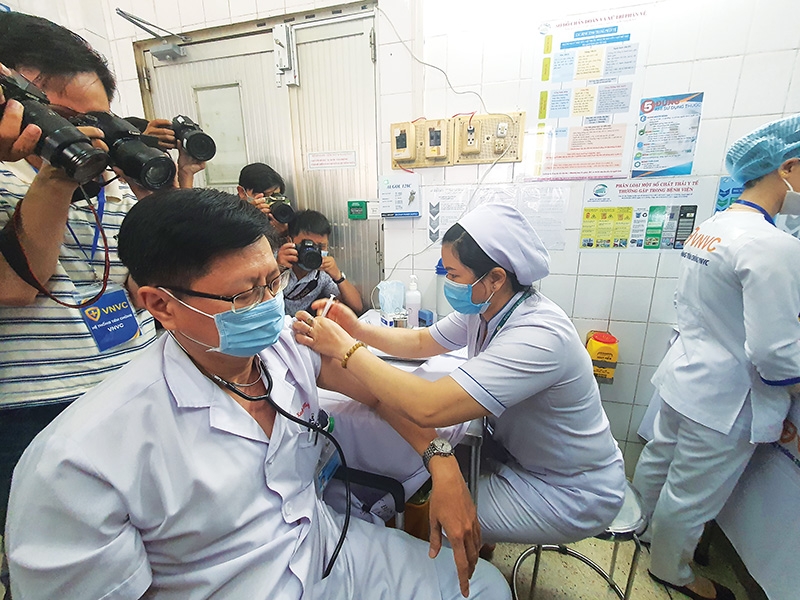 |
| Authorities, healthcare workers, and more besides are rallying to ensure the latest outbreak does not overly affect health and the economy. Photo: Le Toan |
With the number of positive coronavirus cases escalating after the conclusion of the 15th National Assembly and all-level people’s councils for the 2021-2026 tenure, Prime Minister Pham Minh Chinh convened a special meeting discussing the pandemic situation and solutions to help enterprises and individuals out of difficulties.
The PM required that greater efforts must be made to push back the pandemic and boost socioeconomic development, and underscored a number of imperative tasks needing to be implemented effectively, and immediately.
The ministries of health; finance; planning and investment; labour, invalids and social affairs; industry and trade; public security; defence; and foreign affairs have all been required to review their tasks and devise new mechanisms and policies to protect the health of the public and businesses. The PM also demanded the close control of immigration activities, especially illegal immigration and residence in Vietnam.
The prime minister ordered subordinate levels to expeditiously work out a strategy for COVID-19 prevention at industrial zones (IZs).
“It is necessary to continue reviewing all regulations and processes on medical declaration and pandemic prevention and fighting, as well as isolation and production and business at IZs,” PM Chinh said. “Relevant ministries and localities have to both formulate and perfect regulations in order to develop a perfect strategy on fighting the pandemic at IZs and ensure supply chain and business operation will not be disrupted.”
Notably, in the middle of last week, the government officially established the Vietnam Fund for Vacination Prevention of Coronavirus Disease 2019 (VFVC), the first of its kind in the country. This move is part of the national vaccine strategy, with the boosting of vaccine research and development, and vaccine purchase from foreign nations.
Under the VFVC, financial and technical resources are to be mobilised from all sources – from the public, businesses, organisations, and funds at home and abroad. Recurrent spending from state coffers must be saved in order to ensure a budget for purchasing vaccines.
Previously, so as to secure funding for COVID-19 vaccines, the Ministry of Finance submitted a proposal to the government for approval of a VND25.2 trillion ($1.1 billion) COVID-19 vaccine fund.
The total funding includes VND16 trillion ($695.6 million) from the state budget while the rest will be mobilised from the local budget, business community, and organisations. The fund will be used to purchase 150 COVID-19 million vaccine doses for around 75 million Vietnamese people this year.
According to Minister of Health Nguyen Thanh Long, in addition to diversifying access to external vaccine sources, Vietnam is also seeking to acquire patients for vaccine makers, and set up partnerships in vaccine production.
Enterprises in woes
PM Chinh’s fresh order came amid the latest spell of COVID-19 surging and sabotaging the economy, with the aftermath yet to be calculated. However, damages have already been felt by some business associations and international organisations.
Hong Sun, vice chairman of the Korea Chamber of Business in Vietnam, told VIR that the organisation, which represents about 9,300 South Korean businesses using over one million labourers in Vietnam, highly appreciated the PM’s order.
“We hope the solutions set out by PM Chinh will be strictly implemented. All South Korean businesses here have been badly affected by COVID-19. Many have suffered from disruption in supply chains, shortages in input material imports, and financial issues,” Sun said.
“Many of them have also been exhausted and many labourers have temporarily halted their work, especially those operating in aviation, catering, and tourism,” he added. “Consequences are incalculable now, but they are quite huge.”
According to Sun, the government’s idea of developing a national vaccine strategy and a specific plan on fighting against COVID-19 at IZs is a necessary one.
“IZs have too many workers working together at a close distance, so they must be vaccinated as a priority,” Sun said, adding that many foreign companies, including many South Korean ones, stand ready to side with the government in the fight.
“They are willing to cooperate with the government to develop and purchase vaccines. However, the problem is that safe and effective vaccines must be selected, and that prices must be negotiated,” he said. “For big enterprises, cooperation is not a big problem, but smaller ones with limited capital need to be supported by the government.”
The American Chamber of Commerce in Hanoi (AmCham Hanoi) last week released a survey it conducted nearly two weeks ago about the business impact of the ongoing pandemic in Vietnam.
The survey focused on business operations, travel and activity restrictions, burdensome procedures for in-bound arrivals, and the availability of vaccines in Vietnam.
“The coronavirus outbreak is causing anxiety and uncertainty across all business sectors in Vietnam,” said Adam Sitkoff, executive director of AmCham Hanoi. “Over 90 per cent of our members responding to the survey said the current outbreak has affected their business operations here.”
The biggest challenges are a lack of available vaccine to protect their team members, and not being able to bring necessary people here due to burdensome travel requirements and paperwork. Over 70 per cent of respondents said their company is currently restricting work travel in Vietnam.
Sitkoff added that around 90 per cent of AmCham members have cancelled work or personal travel due to the current outbreak that has found infections in 30 cities and provinces here. “The health and safety of people in Vietnam should remain the government’s number one priority,” he said. At the same time, Sitkoff added, it is important to recognise that in-bound travel brings in the foreign experts and business people necessary to facilitate new investment, efficient operations, key infrastructure, education of Vietnamese children, and more.
Ensuring availability
Survey results found that 81 per cent of members say their companies would bring more people to Vietnam if the mandatory quarantine period was reduced from 21 to seven days.
The pandemic is likely to continue causing disruption and locking people inside a room for many weeks might seem like a good idea today, but Vietnamese policymakers need to think seriously about a safe and simple system of documentation that will facilitate international arrivals.
“Vaccines have proven safe and effective. AmCham encourages authorities to implement less burdensome entry procedures for fully vaccinated business people, foreign experts, and maybe even tourists,” Sitkoff said.
In the survey responses, AmCham members repeatedly stressed the need to get more people vaccinated. In fact, 88 per cent of respondents said they or their company would pay money to receive a high-quality vaccine here.
The AmCham executive director again offered to gather financial resources from companies if the government would guarantee quick vaccine availability for their team members. Sitkoff added that vaccine availability is the top issue on the minds of AmCham members right now, and that until many more people are covered, they will likely see additional outbreaks and disruption from the virus here.
A study from the Asian Development Bank (ADB) suggested that there has been a huge impact from the pandemic on the income and poverty of Vietnamese households. For example, it will reduce household per-capita income on average by 9.8 per cent, and the poorest income group will suffer a 10.2 per cent income drop, while the poverty rate of households in the poorest income quintile will rise by 40 per cent. There will be an additional 1.7 million poor people due to COVID-19, and those living in rural and remote areas will be more severely affected.
“In the short-term, the major downside risks are the pandemic re-emerging from new coronavirus variants and delays in the government’s vaccination plan. A faltering global vaccine rollout could have an immediate impact on Vietnam being able to return to its strong pre-pandemic growth path given the country’s reliance on external demand,” Andrew Jeffries, ADB’s country director for Vietnam, told VIR.
Meanwhile, the World Bank also commented that the current outbreak in Vietnam has led to a sharp increase in community transmitted infections, forcing the government to close schools in many provinces and to reinstitute precautionary health and mobility restrictions measures.
“Depending on the magnitude of the outbreak and how quickly the government will be able to bring it under control, domestic economic activities will be affected, especially those in sectors such as tourism, transport, and retail,” said the World Bank in its May bulletin. “If this happens, the government may wish to consider boosting domestic demand by adopting a more accommodative fiscal policy, including increasing its support to affected businesses and people.”
| Truong Tu Phuong - Chairwoman, Dai An JSC Dai An Industrial Zone, Hai Duong
In the complex happenings of the pandemic, especially the situation at industrial zones (IZs) where large volumes of people are gathered, if more and more workers get infected, the authorities will face more difficulties in controlling the outbreaks. As a result, the consequences could be more economic damages and serious impacts on business results for factories in IZs. In any difficult situation, the benefits of employees must come before those of the enterprises. Therefore, Dai An IZ is calling on enterprises to strictly guide their employees to wear face masks when they go out to public places and in public vehicles. Besides that, they must regularly wash their hands with soap and antiseptic liquid, limit gatherings, and keep distance with other people. In addition, they have to comply with the government’s pandemic prevention messages and the requirements of the steering committee for COVID-19 prevention and control of the province. The IZ itself has also installed barriers at the gate in order to control traffic volumes. Koen Soenens - General sales and marketing director, DEEP C Industrial Zones, Haiphong
The production and business activities of DEEP C IZs and factories in the area are significantly suffering because of the pandemic and COVID-19 prevention measures. In order to avoid the spread of the pandemic in crowded IZs as well as to protect the contribution of IZs to the Vietnamese economy, enterprises are eager to have their employees soon offered vaccination. Due to interruptions of IZs in Bac Giang and Bac Ninh provinces caused by the COVID-19 pandemic, we are concerned about a similar situation taking place at DEEP C, which is home to over 100 manufacturers. With the determination to prevent the pandemic penetrating in the IZs from outside, the managing board has asked enterprises to strictly control movement of foreign experts and labourers with relations to areas suffering from COVID-19. We also encourage employees to be honest in medical declarations in order to apply solutions to localise the disease, and isolate and control the pandemic on time. Hoang Trung Kien - Deputy director, Quang Ninh Economic Zones Management Authority
Quang Ninh’s IZs are home to 56 enterprises with 28,000 employees, nearly 2,000 of whom returned from cities and provinces outside Quang Ninh after the early May holiday weekend. To ensure safety for enterprises in these areas, the management authority established a steering committee for COVID-19 prevention and control at IZs. Every single enterprise also has to establish their own steering committee. We are closely cooperating with local authorities to clarify the information of foreign experts and employees that completed isolation requirements before returning to Quang Ninh in the second half of April. These people also complied with isolation requirements at home. Entire enterprises have built their own plans to prevent the pandemic, approved by provincial leaders. Being aware of the expansion risk of the pandemic and simultaneously preparing solutions to be ready to cope, tenants at IZs are still maintaining stable manufacturing and business operation, helping to both prevent the pandemic and promote the province’s socioeconomic growth. Le Truong Ky - General director, Dinco Engineering & Construction Corporation, Danang
COVID-19 has seriously affected businesses in all industries, especially those in tourism and services. Through past outbreaks of the pandemic, enterprises have adapted to the task. However, implementing solutions to prevent the pandemic affect work progress because employees have to apply isolation policy and online working. In addition, we cannot repeat the lockdown policy every time. We need more effective solutions and I think that carrying out a wide vaccine progamme is the most optimal solution. The government prioritises frontline anti-pandemic forces for vaccines, and enterprises will be in charge of the cost for carrying out vaccine efforts for their labour force. Dinco is willing to spend on this action. Alongside that, the government needs to issue tax payment support policies for enterprises to help them overcome this difficult period. I do believe that enterprises across the country want to work with the government to accelerate the COVID-19 vaccine progress to prevent the pandemic and build the country up. Le Bich Loan - Deputy director, Saigon Hi-tech Park Management Authority Ho Chi Minh City
Saigon Hi-tech Park (SHTP) is home to 85 businesses employing 4,500 employees, including 500 experts. To combat the pandemic, all companies are tightening COVID-19 prevention protocols by adopting the Ministry of Health’s 5K measures. We now follow a set of indicators to assess COVID-19 risks for businesses issued by Ho Chi Minh City Steering Committee for COVID-19 Prevention and Control (HCSC). Besides wearing face masks and checking body temperature, companies strictly maintain social distancing in the park. Some office employees are allowed to work from home. The factories have also limited the number of workers running a production line to less than 20 people 2m apart, in compliance with the municipal city’s rules. SHTP also randomly collects samples form factory workers, with only negative results so far. However, new COVID-19 cases are surging in the city so we have prepared different scenarios to deal with possible infections at the park. SHTP, Ho Chi Minh City Department of Health, and HCSC are rehearsing pandemic action plans. |
What the stars mean:
★ Poor ★ ★ Promising ★★★ Good ★★★★ Very good ★★★★★ Exceptional
Related Contents
Latest News
More News
- Vietnam sets ambitious dairy growth targets (February 24, 2026 | 18:00)
- Masan Consumer names new deputy CEO to drive foods and beverages growth (February 23, 2026 | 20:52)
- Myriad risks ahead, but ones Vietnam can confront (February 20, 2026 | 15:02)
- Vietnam making the leap into AI and semiconductors (February 20, 2026 | 09:37)
- Funding must be activated for semiconductor success (February 20, 2026 | 09:20)
- Resilience as new benchmark for smarter infrastructure (February 19, 2026 | 20:35)
- A golden time to shine within ASEAN (February 19, 2026 | 20:22)
- Vietnam’s pivotal year for advancing sustainability (February 19, 2026 | 08:44)
- Strengthening the core role of industry and trade (February 19, 2026 | 08:35)
- Future orientations for healthcare improvements (February 19, 2026 | 08:29)

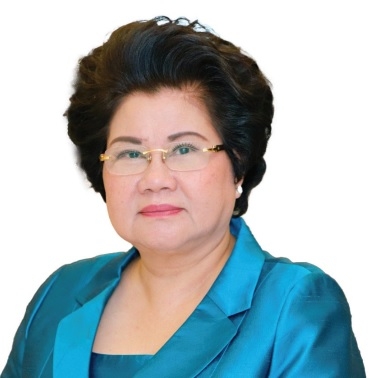
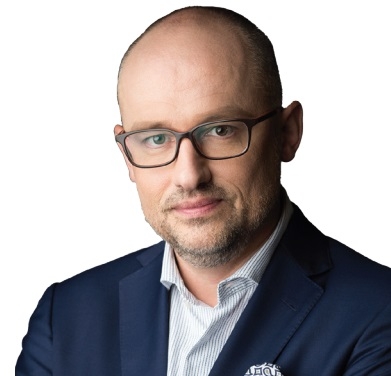
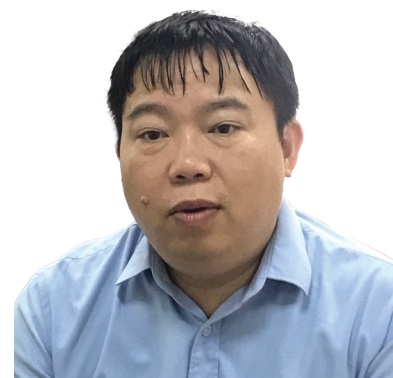
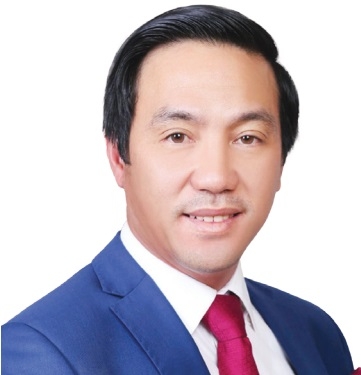

 Tag:
Tag:



















 Mobile Version
Mobile Version